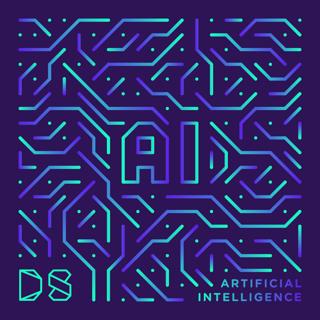
Neuroscience Frontiers
Last week on Data Skeptic, we visited the Laboratory of Neuroimaging, or LONI, at USC and learned about their data-driven platform that enables scientists from all over the world to share, transform, store, manage and analyze their data to understand neurological diseases better. We talked about how neuroscientists measure the brain using data from MRI scans, and how that data is processed and analyzed to understand the brain. This week, we'll continue the second half of our two-part episode on LONI.
19 Jan 201829min

Neuroimaging and Big Data
Last year, Kyle had a chance to visit the Laboratory of Neuroimaging, or LONI, at USC, and learn about how some researchers are using data science to study the function of the brain. We're going to be covering some of their work in two episodes on Data Skeptic. In this first part of our two-part episode, we'll talk about the data collection and brain imaging and the LONI pipeline. We'll then continue our coverage in the second episode, where we'll talk more about how researchers can gain insights about the human brain and their current challenges. Next week, we'll also talk more about what all that has to do with data science machine learning and artificial intelligence. Joining us in this week's episode are members of the LONI lab, which include principal investigators, Dr. Arthur Toga and Dr. Meng Law, and researchers, Farshid Sepherband, PhD and Ryan Cabeen, PhD.
12 Jan 201826min

The Agent Model of Artificial Intelligence
In artificial intelligence, the term 'agent' is used to mean an autonomous, thinking agent with the ability to interact with their environment. An agent could be a person or a piece of software. In either case, we can describe aspects of the agent in a standard framework.
5 Jan 201817min

Artificial Intelligence, a Podcast Approach
This episode kicks off the next theme on Data Skeptic: artificial intelligence. Kyle discusses what's to come for the show in 2018, why this topic is relevant, and how we intend to cover it.
29 Dec 201733min

Holiday reading 2017
We break format from our regular programming today and bring you an excerpt from Max Tegmark's book "Life 3.0". The first chapter is a short story titled "The Tale of the Omega Team". Audio excerpted courtesy of Penguin Random House Audio from LIFE 3.0 by Max Tegmark, narrated by Rob Shapiro. You can find "Life 3.0" at your favorite bookstore and the audio edition via penguinrandomhouseaudio.com. Kyle will be giving a talk at the Monterey County SkeptiCamp 2018.
22 Dec 201712min

Complexity and Cryptography
This week, our host Kyle Polich is joined by guest Tim Henderson from Google to talk about the computational complexity foundations of modern cryptography and the complexity issues that underlie the field. A key question that arises during the discussion is whether we should trust the security of modern cryptography.
15 Dec 201735min

Mercedes Benz Machine Learning Research
This episode features an interview with Rigel Smiroldo recorded at NIPS 2017 in Long Beach California. We discuss data privacy, machine learning use cases, model deployment, and end-to-end machine learning.
14 Dec 201727min
![[MINI] Parallel Algorithms](https://cdn.podme.com/podcast-images/99E5B4C49CC9487AB4880B5C8DF050F0_small.jpg)
[MINI] Parallel Algorithms
When computers became commodity hardware and storage became incredibly cheap, we entered the era of so-call "big" data. Most definitions of big data will include something about not being able to process all the data on a single machine. Distributed computing is required for such large datasets. Getting an algorithm to run on data spread out over a variety of different machines introduced new challenges for designing large-scale systems. First, there are concerns about the best strategy for spreading that data over many machines in an orderly fashion. Resolving ambiguity or disagreements across sources is sometimes required. This episode discusses how such algorithms related to the complexity class NC.
8 Dec 201720min





















